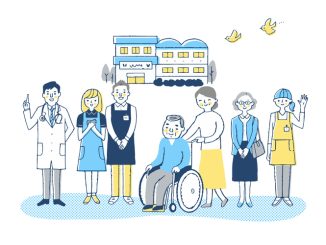
As reported by Digital Health, NHS Digital has announced it is setting up a new primary care data collection service with the aim of giving planners and researchers faster access to pseudonymised patient information
For the last ten years NHS Digital has been collecting data from GPs via the General Practice Extraction Service but it is now to be replaced with their new General Practice Data for Planning and Research (GPDPR) service.
On May 12, the organisation issued a Data Provision Notice to GPs to enable the new data collection process to begin from 1 July, 2021.
NHS Digital confirmed it has been legally directed by the secretary of state for health and social care to establish a new strategic system to collect and provide access to near-real-time data from GP practices for planning and research purposes.
The move, according an NHS Digital statement, was prompted by the COVID-19 which led to a significant increase in the need for GP data to support clinicians, researchers, academics and commissioners.
Any data which directly identifies an individual will be pseudonymised and then encrypted before it leaves a GP practice.
Data will only be shared with organisations who have a legal basis and meet strict criteria to use the information for local, regional and national planning, policy development, commissioning, public health and research purposes.
Sarah Wilkinson, NHS Digital chief executive, said: “The power and utility of health data was clearly demonstrated during the pandemic, where it supported NHS organisations and researchers to roll-out vaccines, identify those most at risk from COVID-19 and investigate disease pathology, amongst other things.
“General practice data is particularly rich and valuable because many illnesses are treated predominantly in primary care. We want to ensure that this data is made available for use in planning NHS services and in clinical research, but it is critical that we do this in such a way that patient confidentiality and trust is prioritised and never compromised.
“We have therefore designed technical systems and processes which incorporate pseudonymisation at source, encryption in transit and in situ, and rigorous controls around access to data to ensure appropriate use. We also seek to be as transparent as possible in how we manage this data so that the quality of our services are constantly subject to external scrutiny.”
NHS Digital said it has consulted with patient and privacy groups, clinicians, and technology experts, as well as with the British Medical Association (BMA), Royal College of GPs (RCGP) and the National Data Guardian (NDG).
However, if a patient does not want identifiable data to be shared outside their GP practice, except for their own care, they can choose to opt-out by requesting that their GP practice record is not shared, known as a Type 1 opt out, or by registering their opt-out through the National Data Opt Out service on nhs.uk.
Arjun Dhillon, Caldicott Guardian and clinical director at NHS Digital, said: “This dataset has been designed with the interests of patients at its heart.
“By reducing the burden of data collection from general practice together with simpler data flows, increased security and greater transparency, I am confident as NHS Digital’s Caldicott Guardian, that the new system will protect the confidentiality of patients’ information and make sure that it’s used properly for the benefit of the heath and care of all.”


Be the first to comment